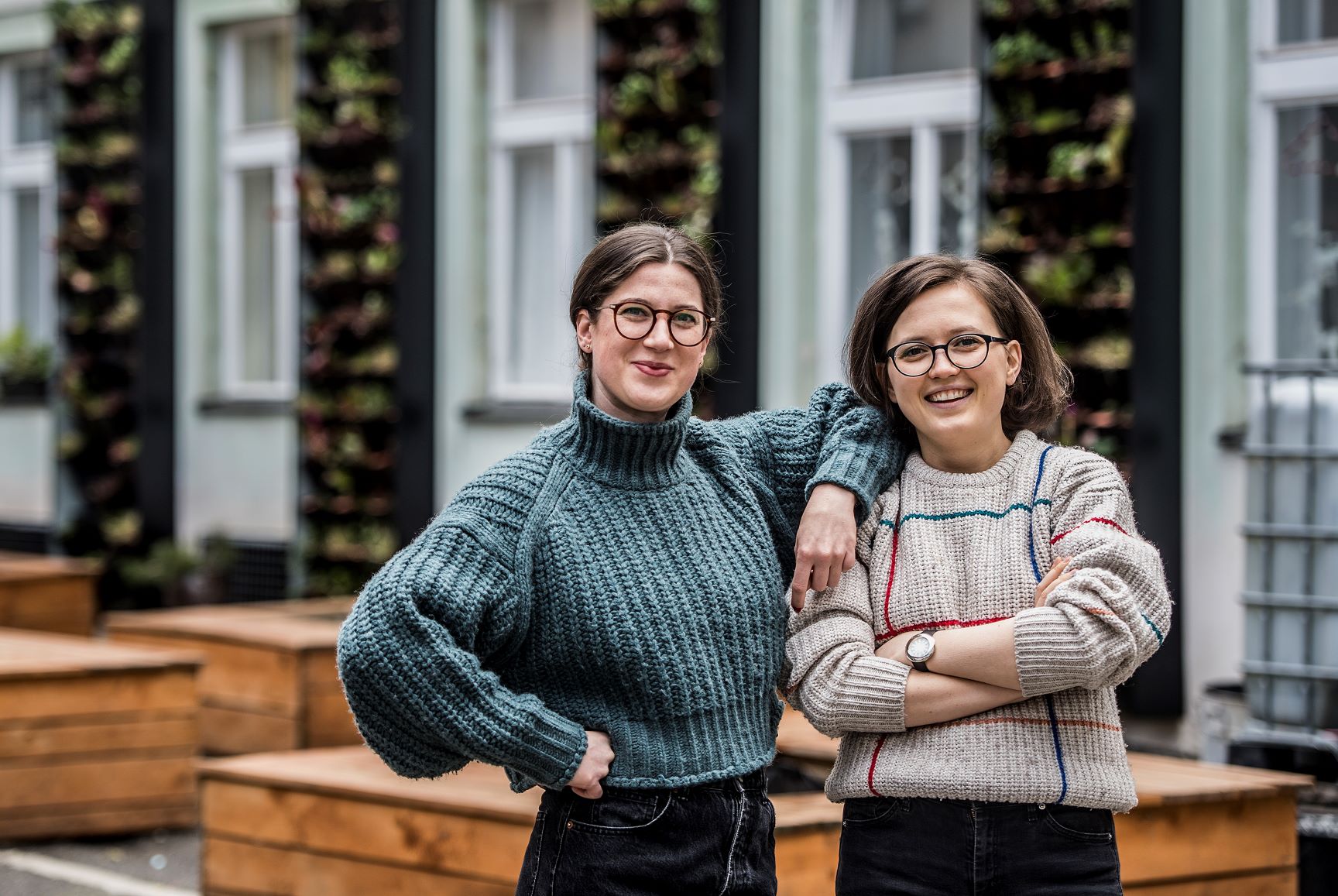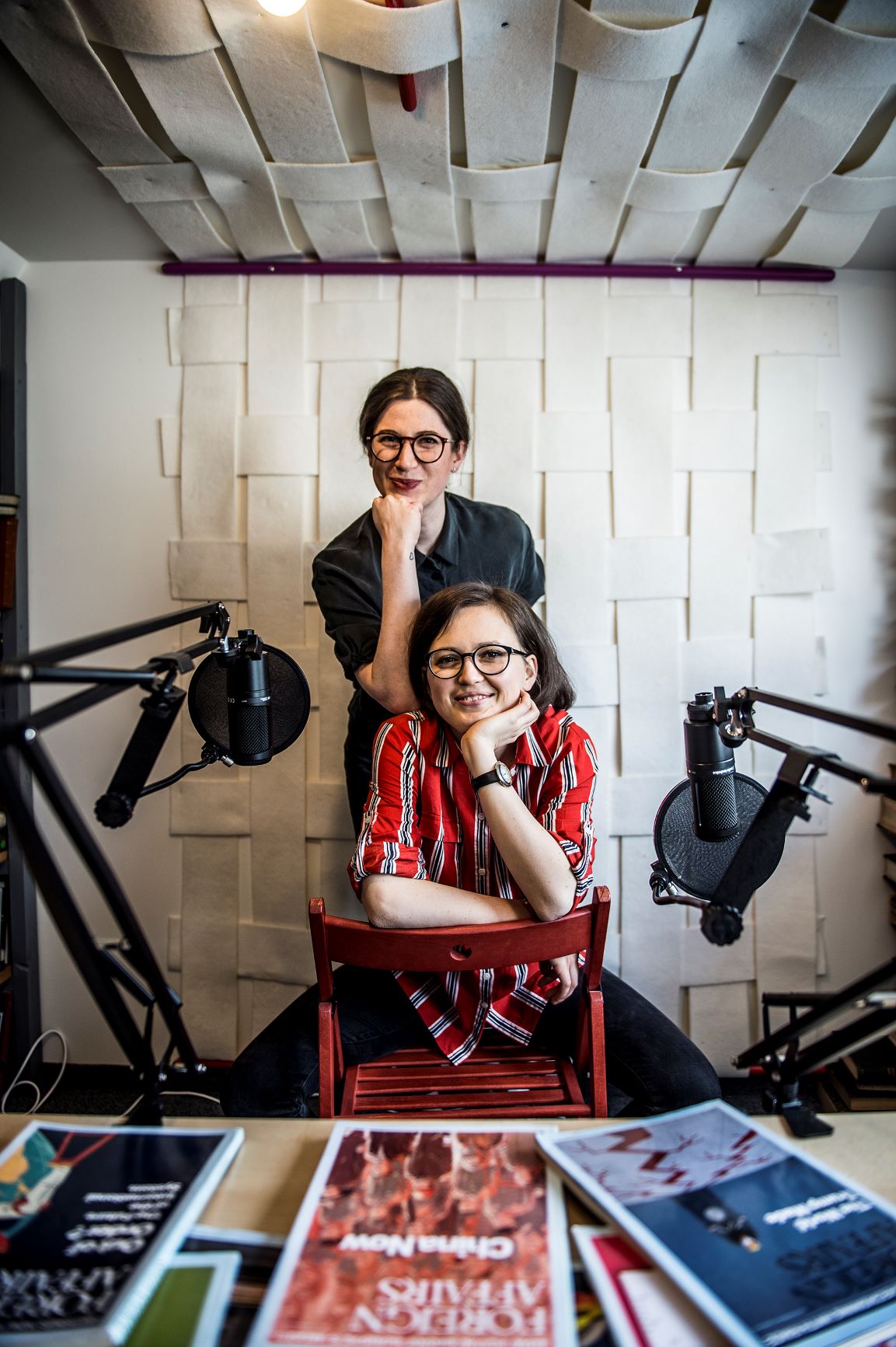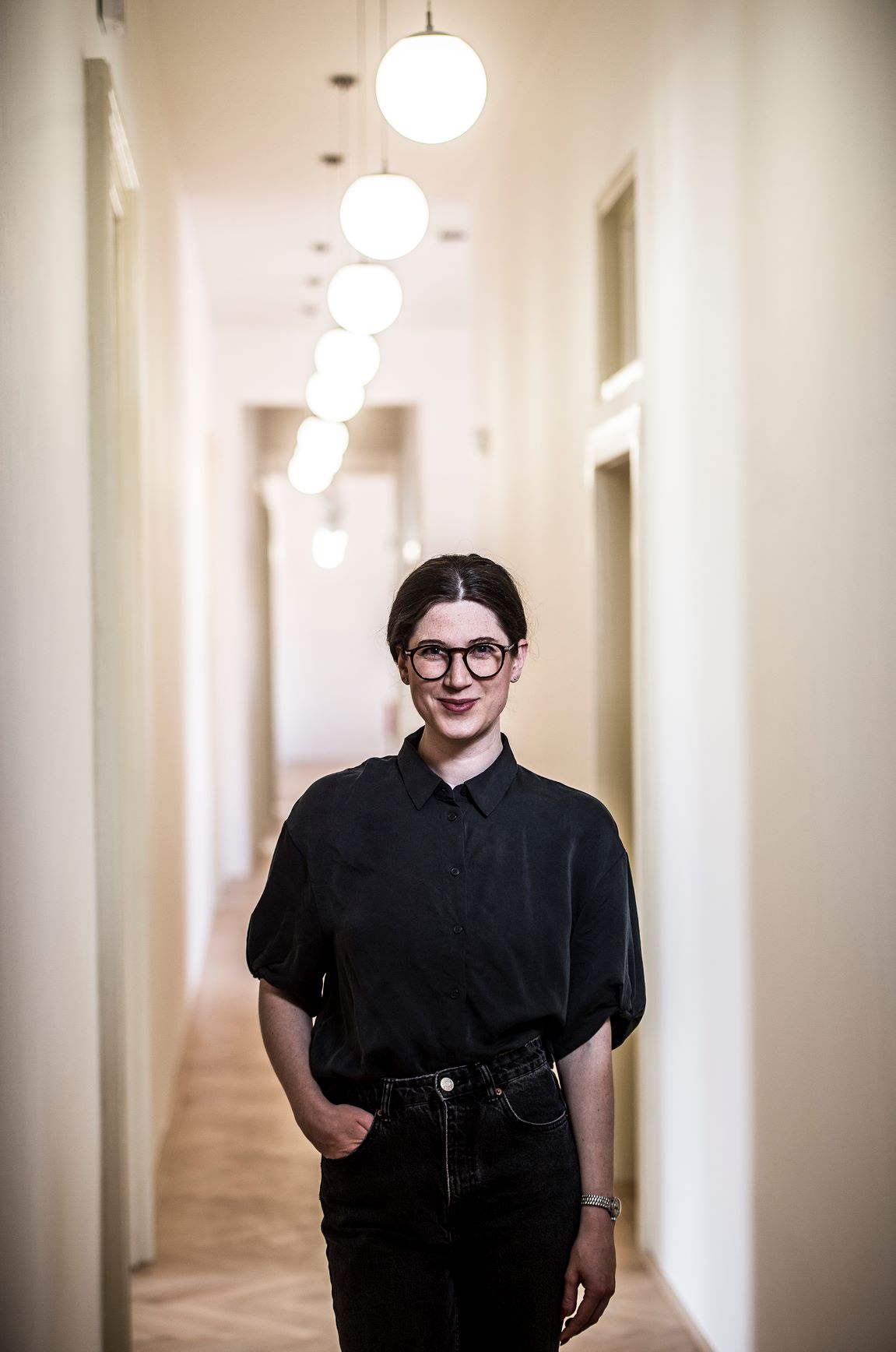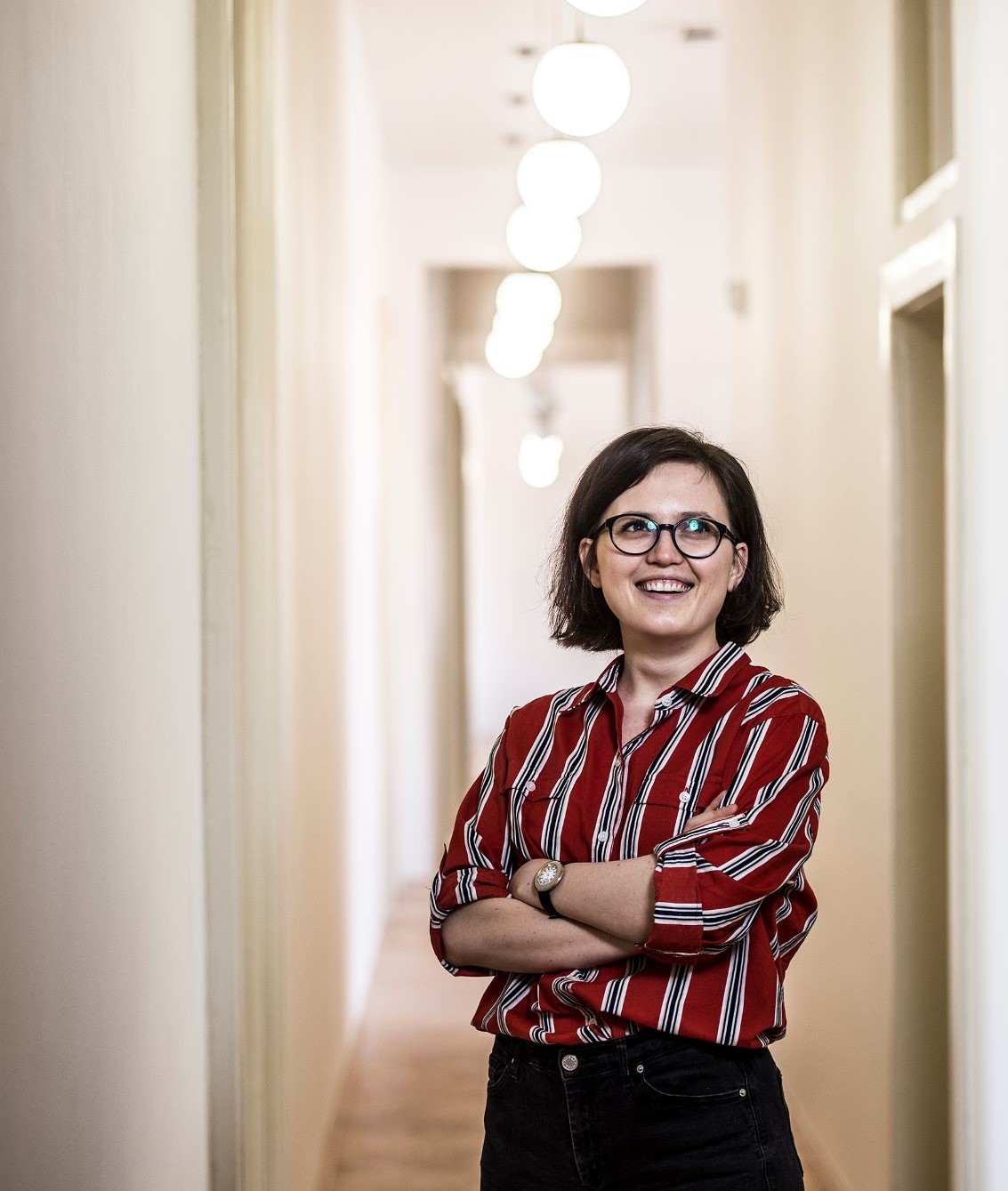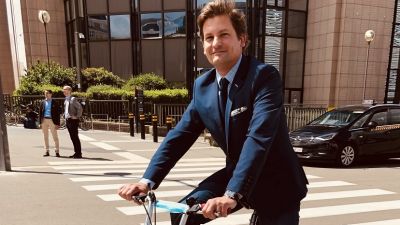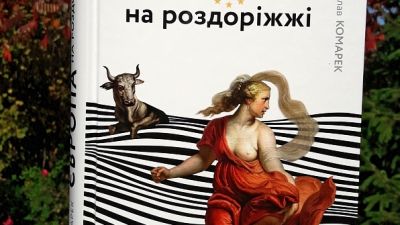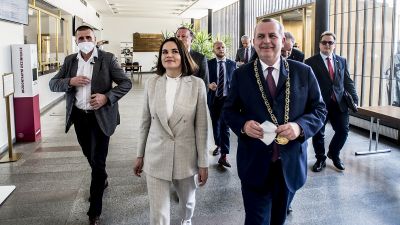“We both have degrees in international relations and we like to talk about what’s going on in the world, so we decided to record our conversations. Let’s see what’s next door,” is how Barbora Chaloupková and Hana Martínková, CU´s alumni, explain their podcast Za Humny (Not far from home) which examines international relations, politics and public affairs and is now finishing its second year.
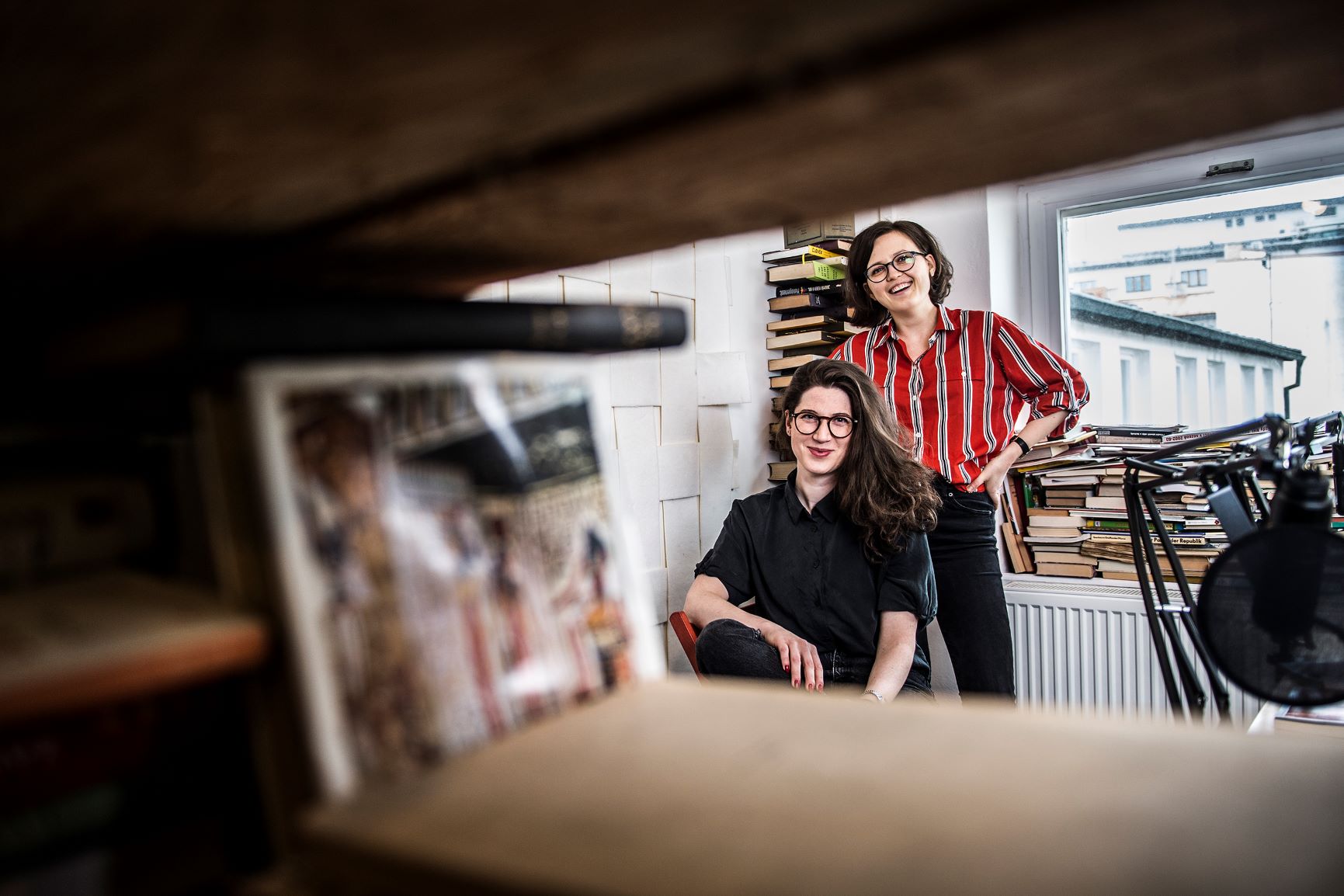
Za Humy podcast creators: Hana Martínková and Barbora Chaloupková (standing).
How would you describe each other?
Hana (in black): Bára is a journalist at the weekly Respekt and a doctoral student at Charles University. We met over Instagram, became friends through the podcast and, not long ago, moved into an apartment together. We complement each other on the podcast; I am more practically oriented and Bára is focused more on academic things. That’s also her strongest suit – she knows how to think deeply about things and make connections between them.
Bára (in red): Hanka is the most Renaissance person I know: her interests range from nuclear physics and nuclear weapons to international politics. As a result, she’s the driving force behind the podcast because she handles things that are not in my domain at all – technical things, numbers. Professionally, she has two university degrees, speaks three languages, was a researcher at the online news site DVTV and now does security and international political analysis for MPs of the Czech Pirate Party.
How long did you know each other on social media before you first met in person?
Bára: A long time. Hanka had a blog that I read in my first year of university… (“It’s not up any more and you can’t search for it,” Hana quickly jumps in to say). And I also followed her on Instagram.
Hana: I also remember Bára from Instagram because she had an interesting profile image – a picture of her feet with a basket of apples. We first met thanks to Andrea Procházková [a journalist for the weekly Respekt] who set up a meeting over wine to introduce us in person. But the meeting of the three of us didn’t happen, because Andrea was writing about the crisis in the Czech Social Democratic Party, so it was just the two of us, a little bit like a ‘blind date’… Then Bára went to the US for a year, and after she got back, at our second meeting, we decided we wanted to have a podcast together.
So you each came up with the idea of doing a podcast together? Independent of each other?
Hana: Yes, it really happened! We met over coffee again and said: “I want to tell you something… And I want to tell you something too.” We took that as a sign, and maybe that’s why we really got into it.
Why do the podcast as a duo?
Bára: I think we both love podcasts – we listen to a lot of them. And we enjoy the dialogue format, the conversation together, in which you can get much deeper into an issue, complementing each other.
Take us behind the scenes. How is an episode of Za Humny made?
Hana: First we choose a topic that interests us, it can be something that is going on in the world at the moment or just one that we like or find interesting. Then there’s a phase of “getting a feel for it” where we independently think about the content we can use to grasp the topic.
Bára: And then we talk for a long time about it on several occasions. We think up a structure and a script, which we intersperse with our self-study and research. Then we go through it one more time, record it and Hanka edits it.
Hana: And then Bára listens to the result. I’ve never actually listened to an entire finished episode (laughs).
How long does it take to create one episode?
Bára: If I were to add it up, it’d be at least three to four full working days.
And what does the preparation before recording look like – do you just have talking points or a detailed script?
Hana: We have a de facto word-for-word script, because otherwise we’d get tangled up. It’s important to have the structure thought out in advance, as we often combine multiple sources.
Bára: The pursuit of spontaneity would come at the expense of the content. Even now it’s often a 40-minute “lecture” and an attempt at casual conversation would stretch that out even further.
What’s your favourite episode? And which one has been the most successful?
Bára: I have an emotional connection to the episode we did in the spring on the economic consequences of the coronavirus crisis. That was such a watershed episode. It was when we first told ourselves that we’re going to get into a really huge topic, and at the same time it’ll have a bit of our own interpretation. There were several milestones in that episode too – we decided to go to 40 minutes long for the first time, and we took on some important books that we discussed together and interpreted. We were very happy about it. If only because we dared to do it. I think that is when we realised there aren’t any podcasts like ours on the Czech scene.
Hana: I agree. So that I don’t repeat what Bára said, I liked the recent episode on surveillance capitalism, a current topic we explained in the context of the book The Age of Surveillance Capitalism (2018) by the Harvard professor Shoshana Zuboff. The most listened-to episode is the one on conspiracy theories.
What does the podcast bring you?
Hana: A lot! It’s enough that we enjoy it and that it fulfils us. But at the same time, we’re living proof that when a person dares to take a step into the unknown, when they involve creativity and a bit of themselves, they can grow incredibly from it. They don’t support that kind of personal involvement very much in Czech schools and universities – and that’s unfortunate. Thanks to the podcast, we have our own project, which we can somehow use to identify ourselves with and present our work and interests, which opens up other possibilities and opportunities.
|
Bára's TOP FIVE: Things that provide inspiration and happiness
1. Interviews that draw you in so much you forget about time
2. Author/\journalist Filip Zajíček's bookshelf.
3. Headlines of favourite journals
4. Podcasts involving Adama Tooze and Helen Thompson
5. Intellectual history (as a discipline) |
Bára: Yes, it’s a source of self-confidence. And an excellent opportunity for growth – it’s taught us to be demanding of ourselves and at the same time to not be, to search for the balance between constantly improving but also accepting that whatever one is working on won’t be perfect.
|
Barbora Chaloupková |
|
Barbora studied at the Department of North American Studies at the Faculty of Social Sciences at Charles University and is currently pursuing doctoral studies. She has international experience from the University of Heidelberg and the University of Richmond. |
|
Hana Martínková |
|
Hana studied Political Science and International Relations at the Faculty of Social Sciences. In her second year at CU, she added the study of economics at Prague University of Economics and Business. Under the Erasmus programme, she studied for one year at Brunel University London. She also went on a student exchange to Brussels. |


